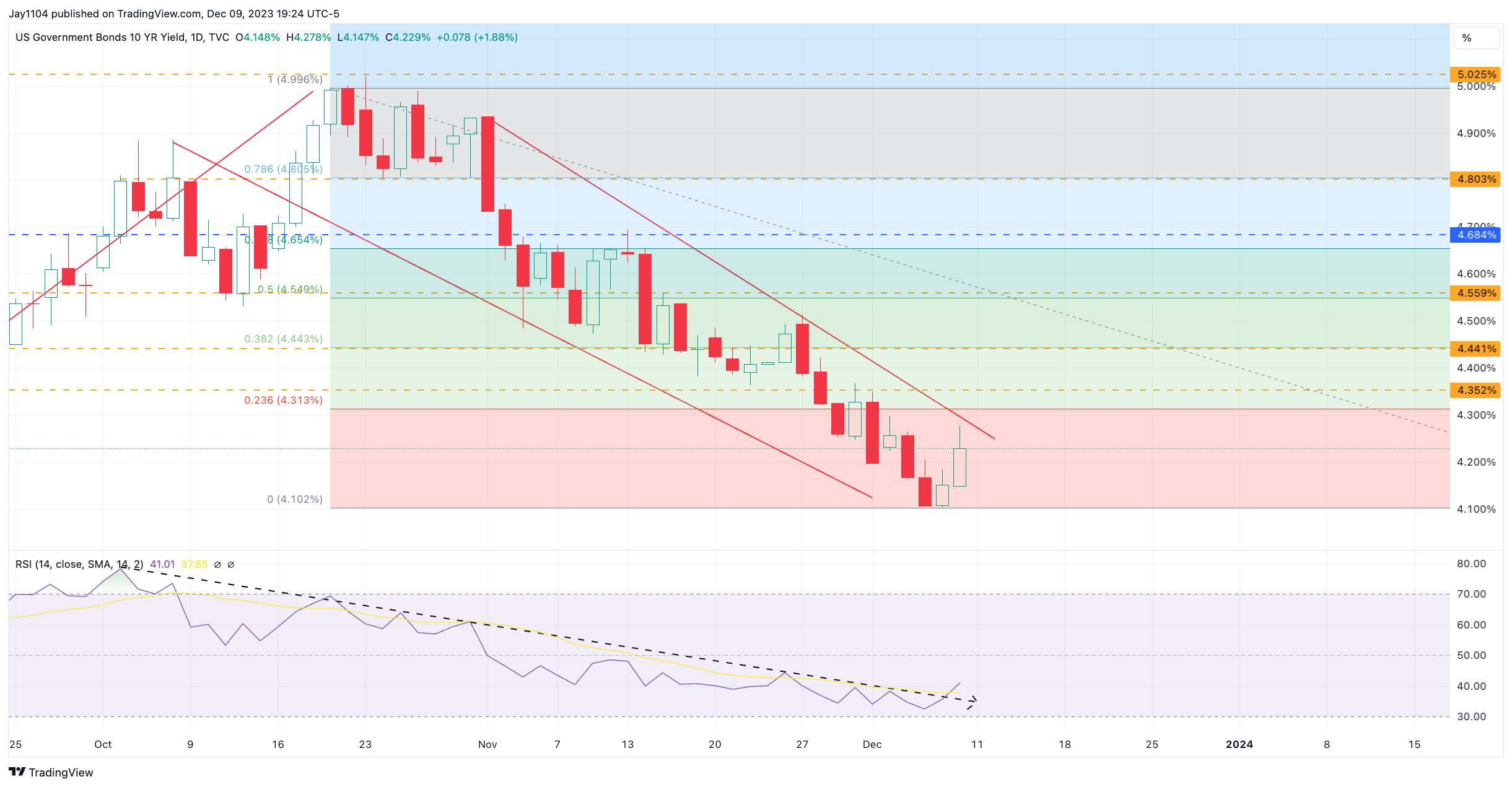This week will be the capstone of 2023 because whatever happens this week will be a send-off message as 2024 approaches.
This week will feature , , and on the economic front. A 3,10, and 30-year Treasury auctions and central bank meetings from the , , and .
To finish it off, it will be quadruple witching options expiration on Friday. Did I miss anything? Next week will perhaps be the penultimate central bank meeting, the .
Auctions
The week will kick off with a $50 billion auction of notes at 11:30 AM, followed by a $37 billion reopening of the notes the same day at 1 PM ET. Then, on Tuesday, the Treasury will auction a $21 billion reopening of the bond at 1 PM ET.
The last time the 30-year was auctioned off in November, it had its largest tail going back to 2011, during the debt downgrade.
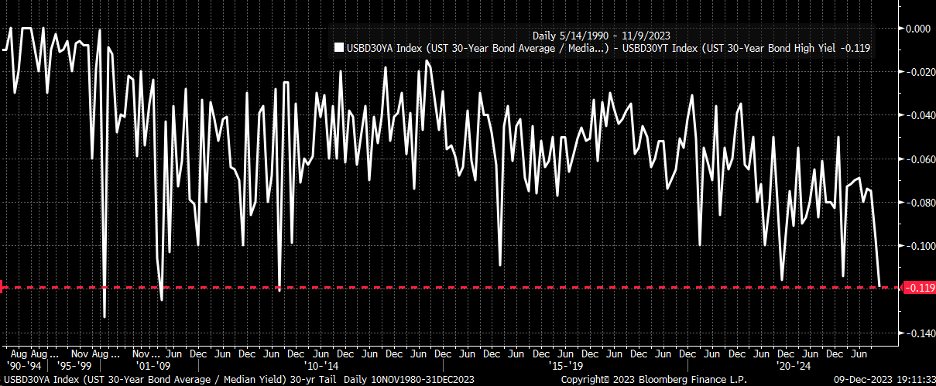
CPI Shouln’t Surprise
Of course, before that, the 30-year auction will be the inflation data, and it is not clear to me that the CPI report will hold any major surprises.
Expectations are for the gauge to rise 0.0% m/m in November flat to October while climbing by 3.1% y/y down from 3.2% y/y. is expected to climb by 0.3% m/m, up from 0.2%, and 4.0% y/y flat with October.
The Fed Won’t Talk About Rate Cuts Yet
I don’t see the Fed endorsing rate cuts, and it will stick to its being premature to talk about rate cuts now. I guess that the message will sound very similar to what Powell gave in his speech before the blackout period, which the market ignored.
That message will be conveyed through Powell and the dot plots, with the 2024 median remaining unchanged, 2025 increased, and possibly the longer-run rate pushed up, too.
I think that ultimately, we will see a rebound in long-end rates. I’m not sure it means new highs, but a retracement seems right.
The 10-year has broken its downtrend on the relative strength index and is approaching the upper end of a downtrend. But a 61.8% retracement of the recent drop in rates could easily take the 10-year back to 4.70%
Meanwhile, the also looks poised to go higher from current levels. There appears to be an inverse head and shoulders pattern in the .
The dollar bounced sharply off the 61.8% retracement level and now has an RSI that appears to be turning higher longer-term and has recently broken above a short-term downtrend. A push above 104.5, back on its way to 105.60.
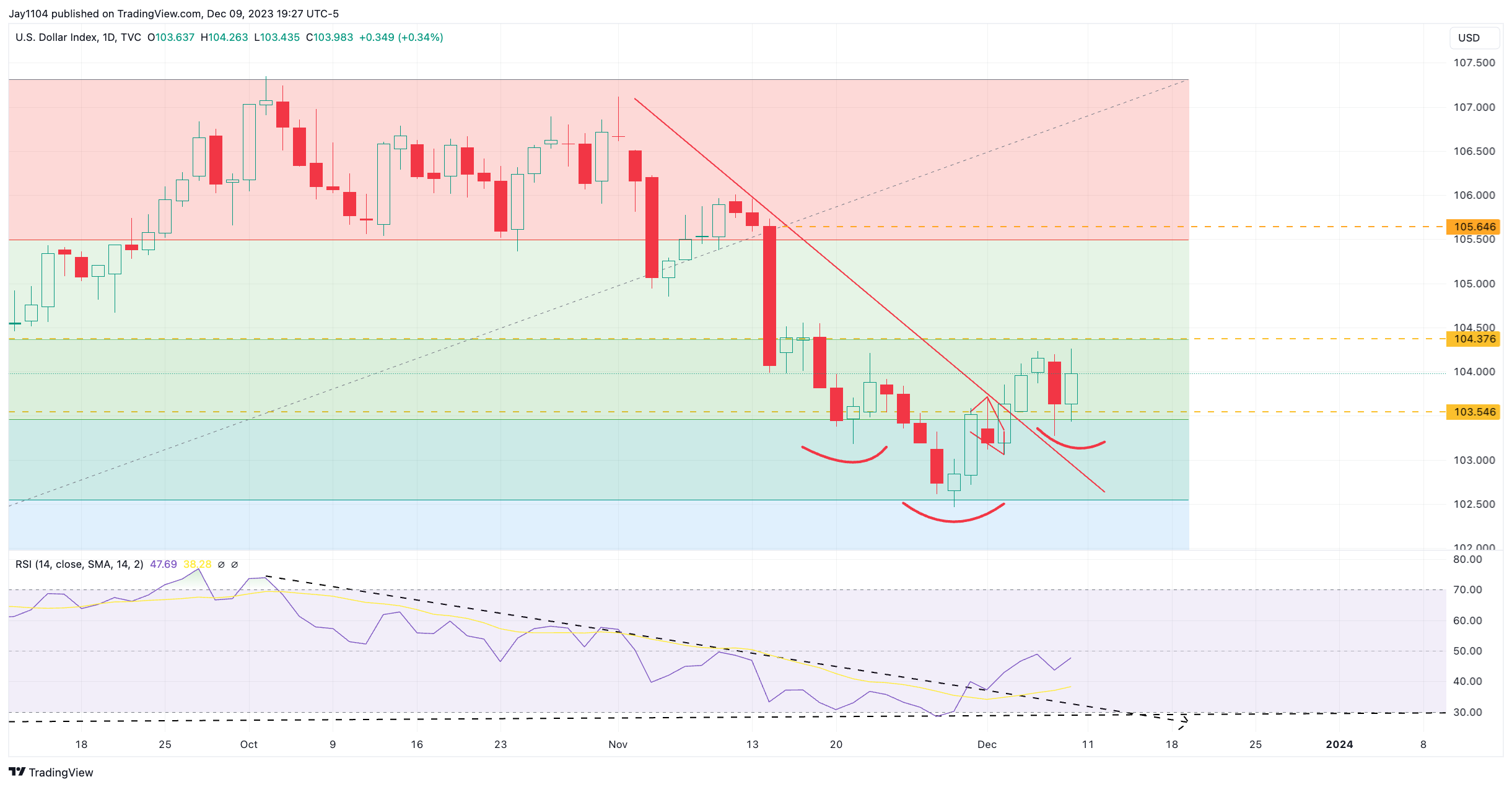
Higher rates and a stronger dollar will certainly be needed for financial conditions to tighten, especially since the Fed decided to include how tighter financial conditions could weigh on economic activity in its statement in November. The GS financial conditions eased by its largest amount ever in November.
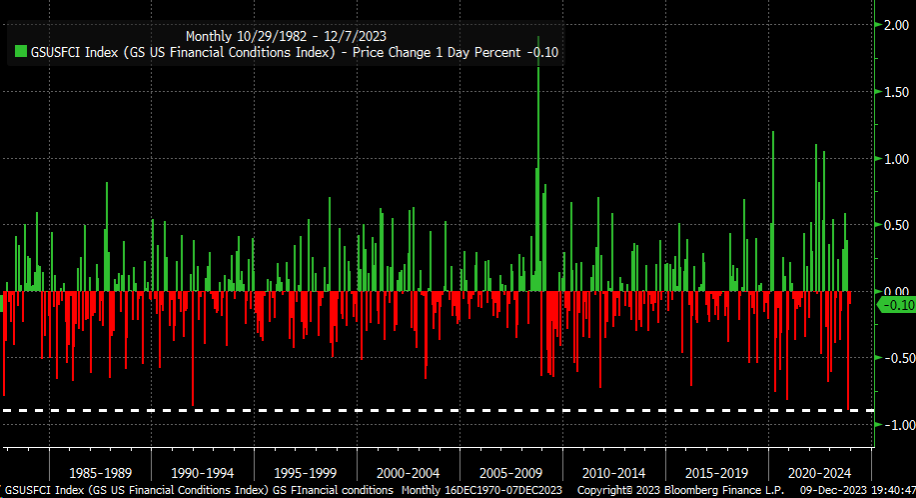
Markets: Call Sellers to Push Indexes Lower
Meanwhile, the moved higher on Friday and just eeked past its July highs. If we move lower today, it won’t matter much, but if we continue to go higher, I will have to redraw my wave count and think harder about it.
But logically, there are a lot of reasons why stocks shouldn’t continue to move higher, with the most obvious reason being the call wall for this coming Friday at 4,600.
As far as I know, that level has not changed, and as noted on Thursday, it was likely to bring out call sellers.
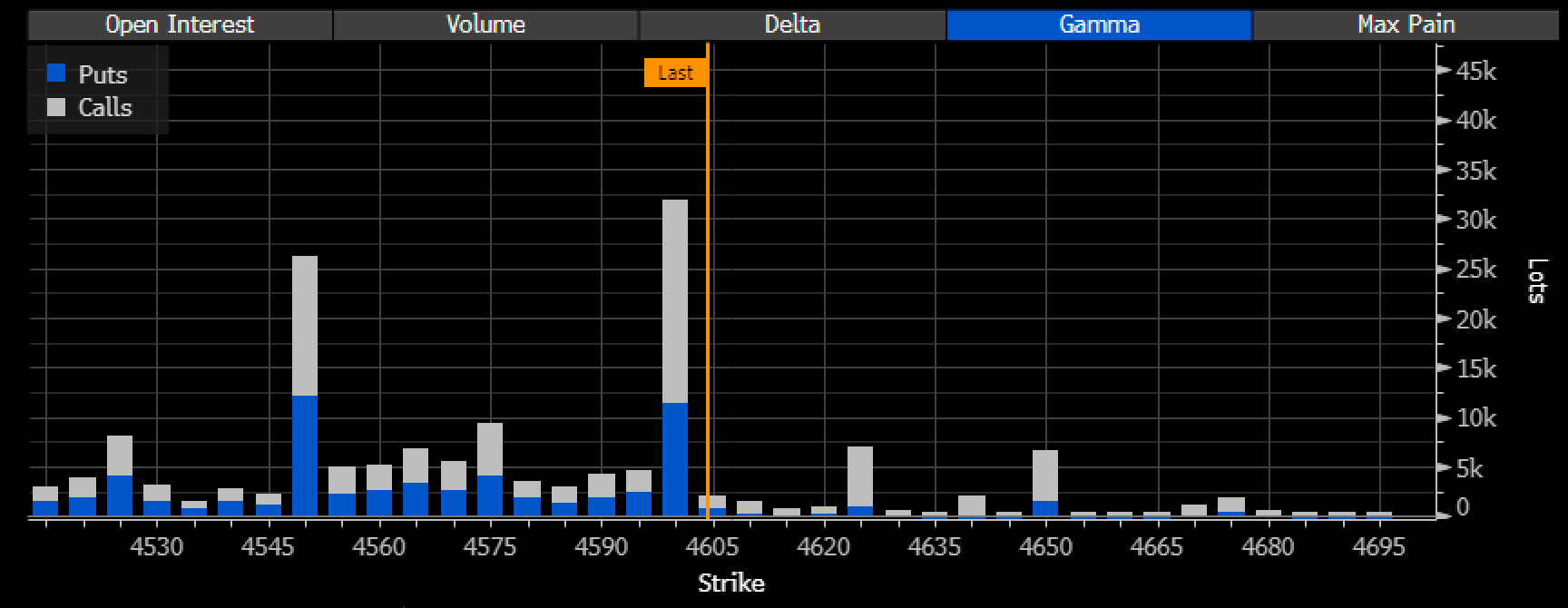
According to Goldman, the corporate blackout window begins this Monday, with the $5 billion daily VWAP machine hibernating mid-January.
If Friday’s price action seemed mechanical, the above probably had a lot to do with it since buybacks stopped at 3 PM ET, which was exactly when the mechanical move ended.
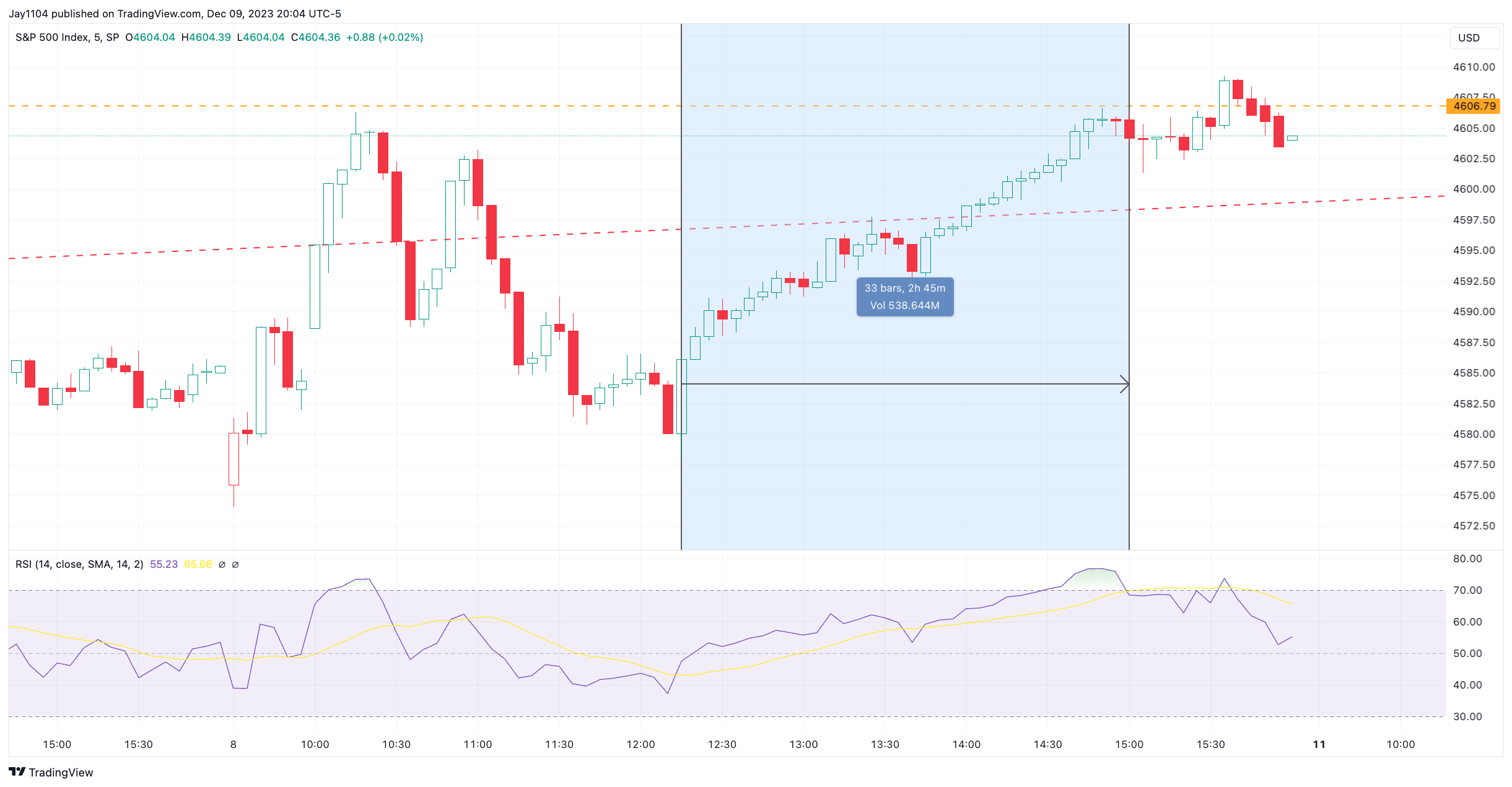
Meanwhile, once we get past opex on Friday, 37% of S&P 500 gamma will come off, which could increase volatility in the market.
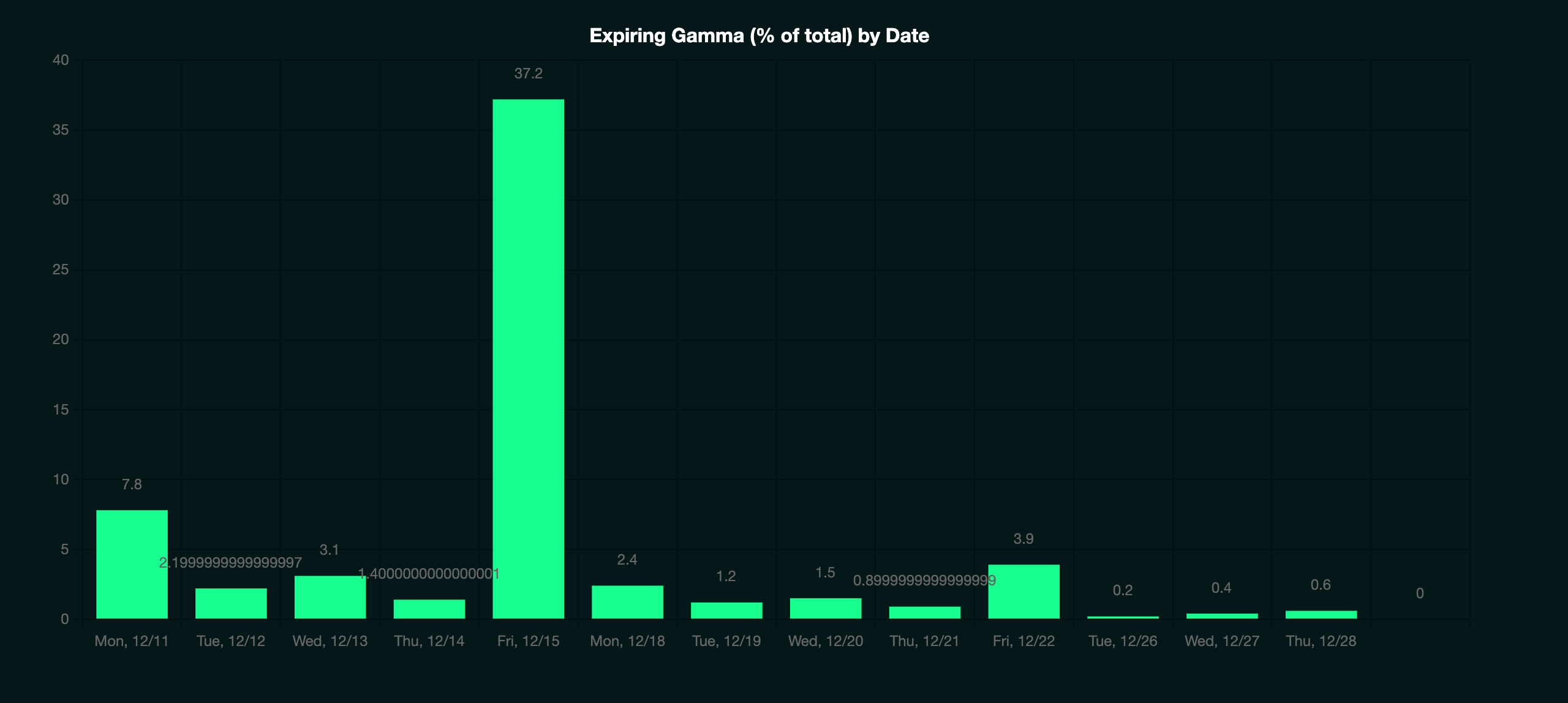
The loss of gamma and the absence of the buybacks set the market up for more volatility, especially during multiple central bank meetings. The big central bank meeting will also be the BOJ, which will be next week.
If the BOJ decides to move and come out of its negative interest rate policy, it will start strengthening the and moving it lower, which does put at risk stability because it would likely start the unwind of the carry of trade, and it is hard to measure just how much impact that would have.
The yen has already started to strengthen in anticipation of a change in policy stance from the BOJ.
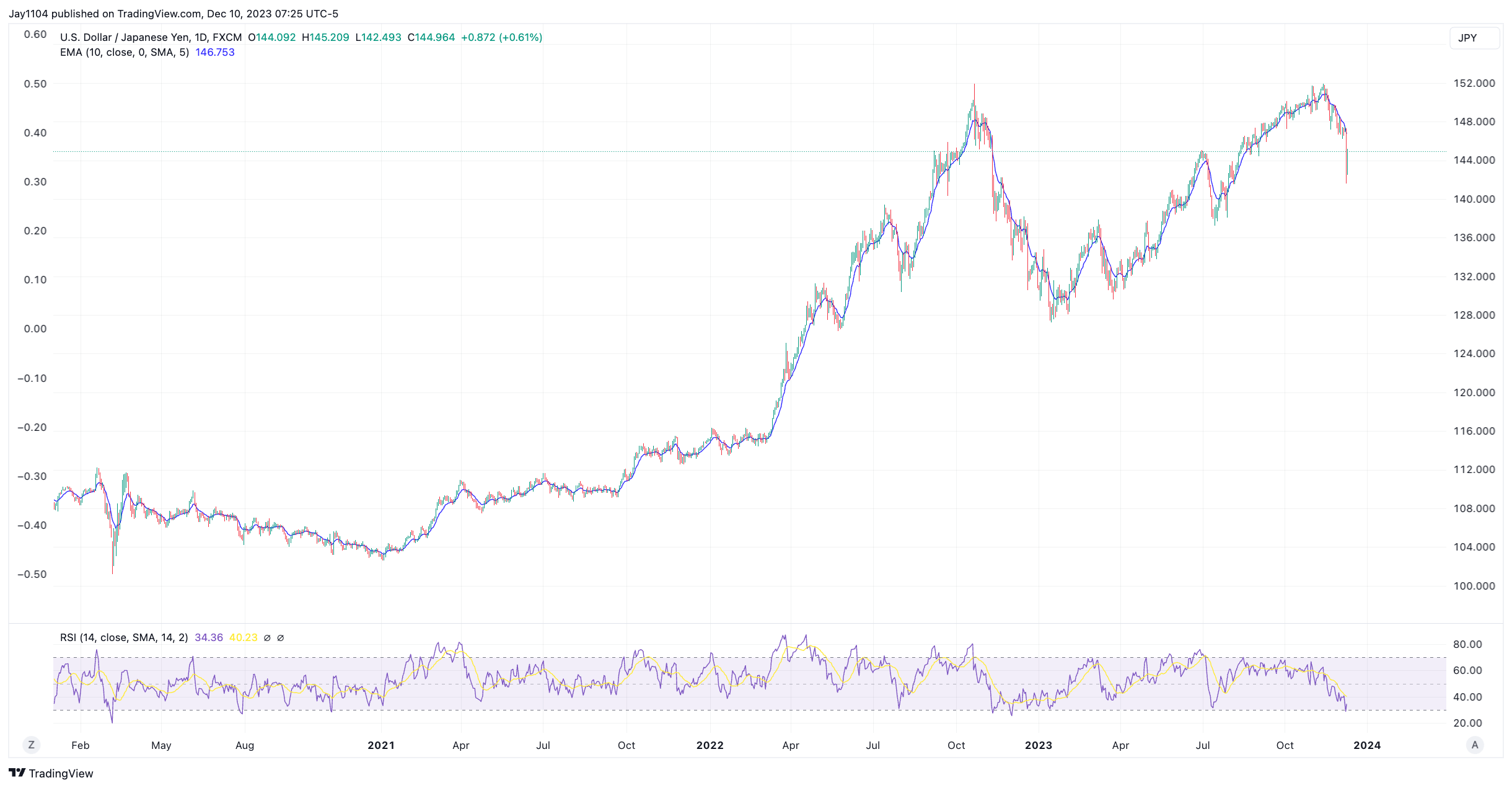
We can use the as a proxy because if the rally in the Nikkei has been due to the weaker yen and not due to a true bull market, then the stronger yen will sink stocks in Japan.
After all, the leg higher in Japan starting in March was due to the weakening of the Yen.
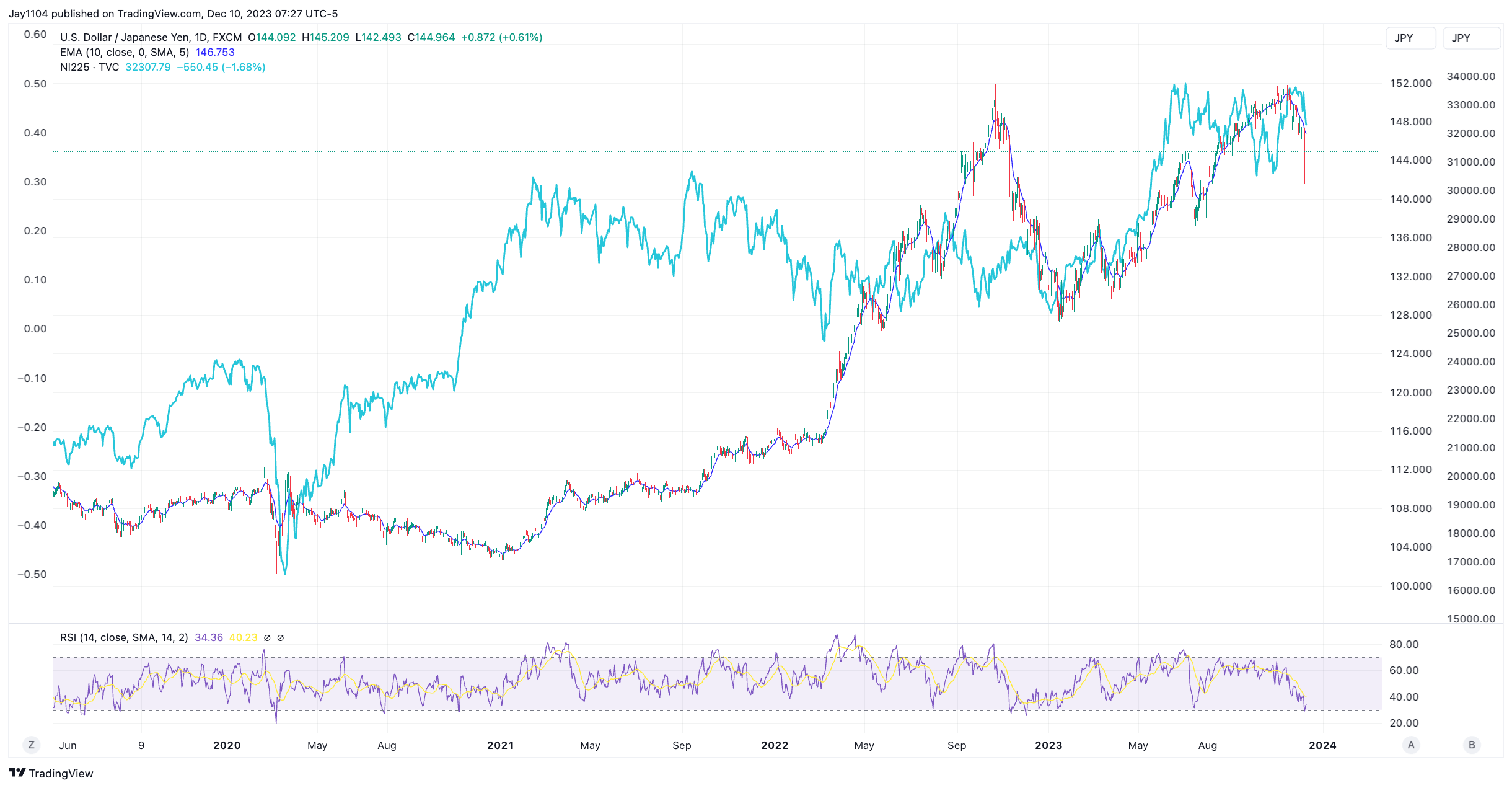
Coincidence or not, the move higher in the Nikkei looks identical to the rally we have seen in the over that same time period.
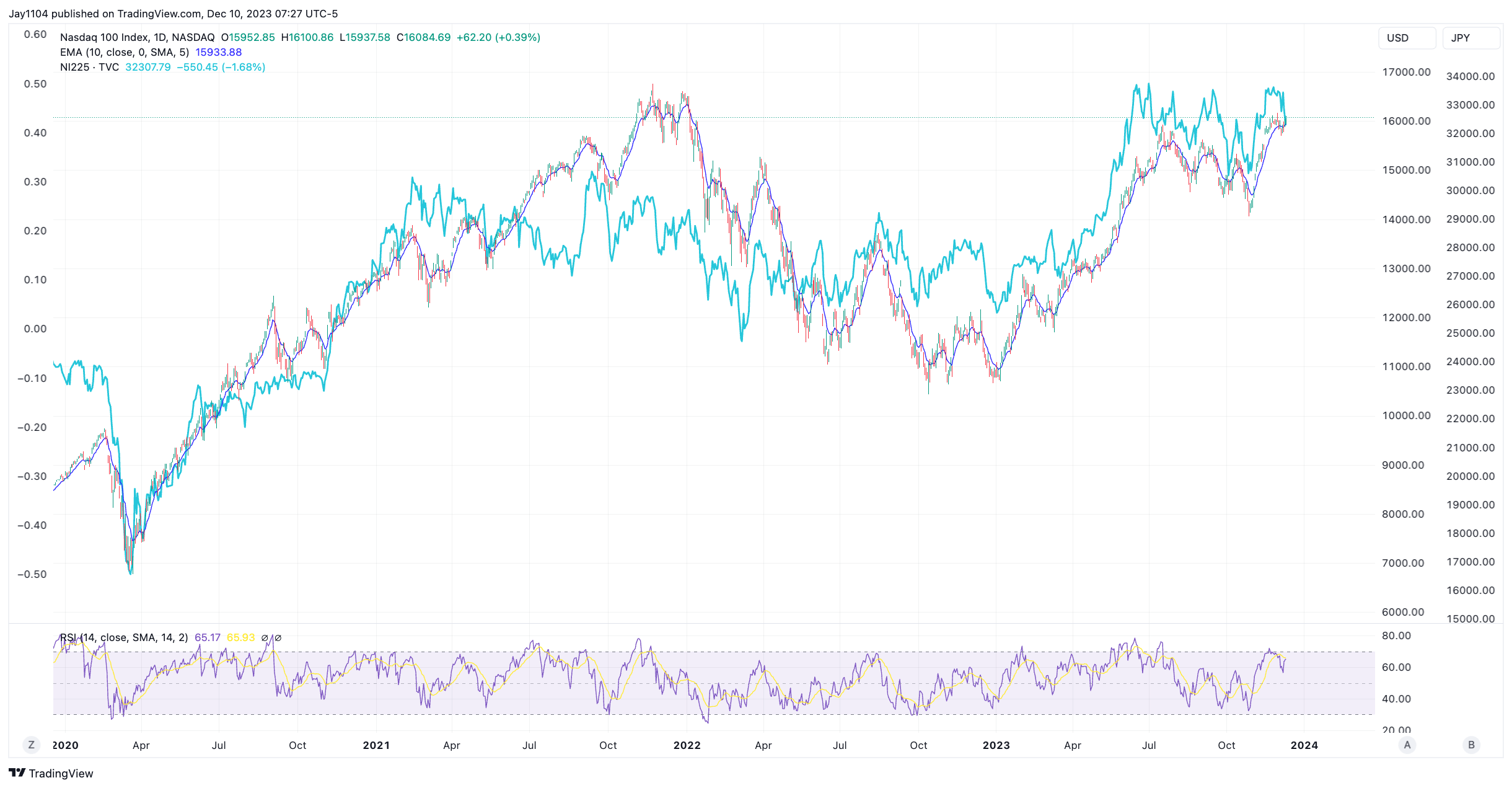
As does the rally in the S&P 500.
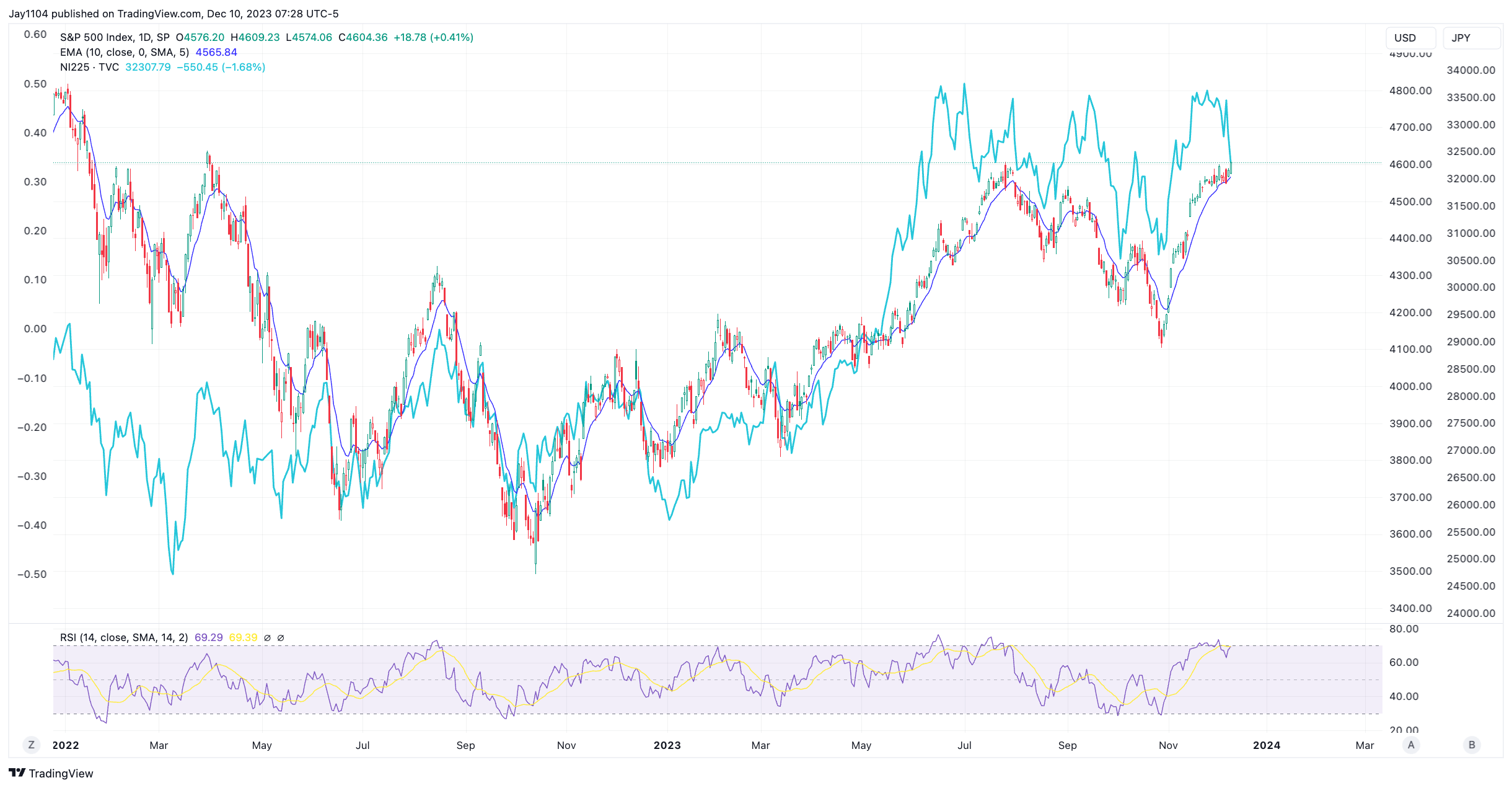
Meanwhile, the 1/3 speed resistance line from the October 2022 low continues to offer meaningful resistance for the S&P 500, and the diamond pattern, on my part, appears to be incorrect unless we come back down quickly today.
However, the rising broadening wedge is still part of the large pattern, and those rising broadening wedges tend to be bearish patterns; there is also a bearish divergence pattern that is present in the RSI.
So, my thought process that the S&P 500 returns to 4,100 and fills the gap is still valid at this point. Friday’s rally didn’t do enough damage to kill the idea completely.
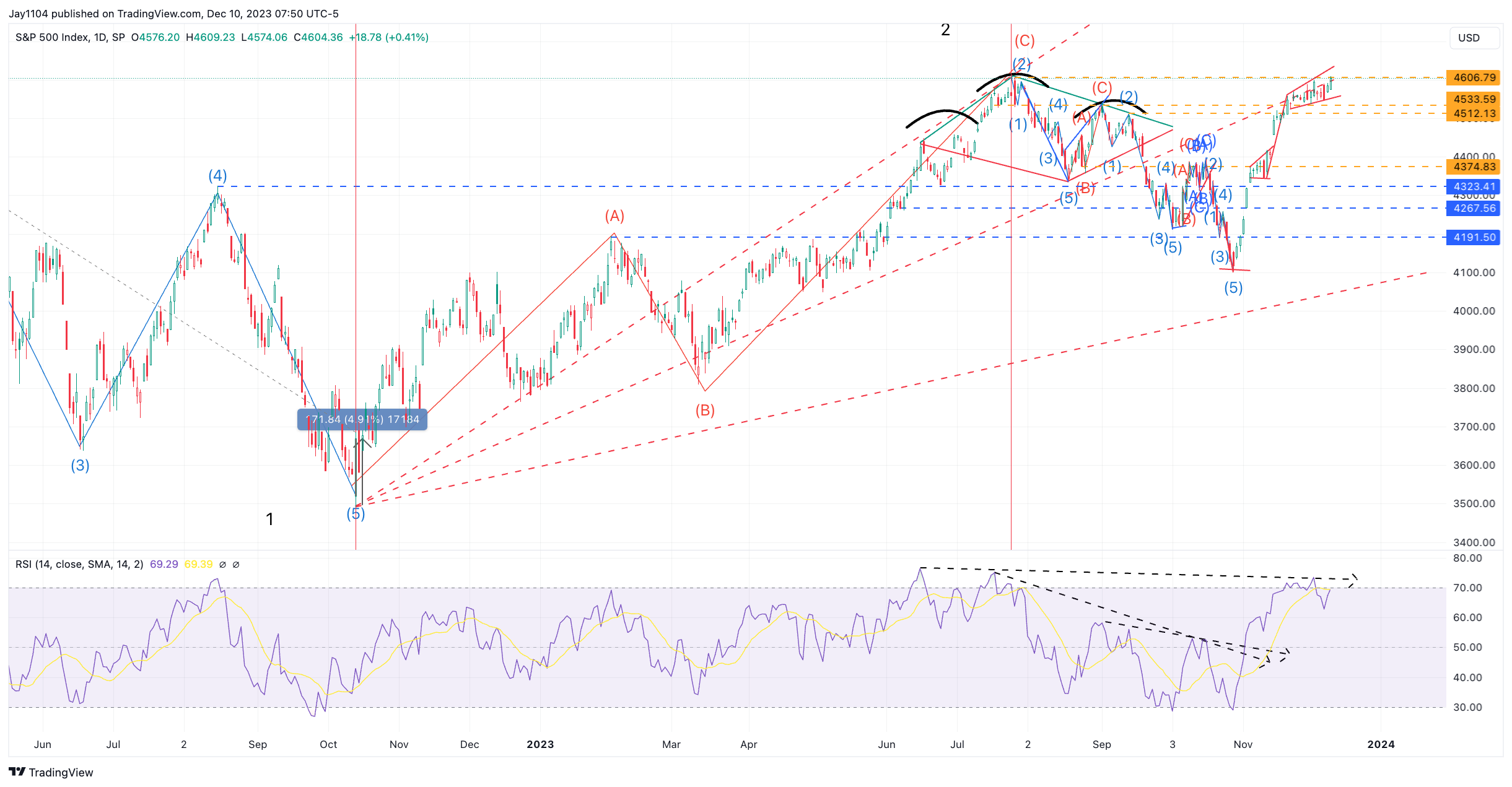
This week’s YouTube video is a 3-part series:


